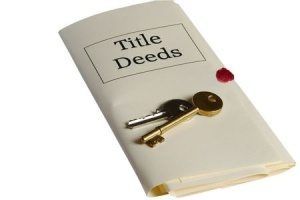All Posts
Recent Posts

Most clients come to us for help with handling credit card debt (or other consumer debt) upon being sued by a creditor or collection company, or when looking to get a mortgage loan and needing to clean up their credit reports. This blog post covers options that are an alternative to bankruptcy.
The steps to handle the debt is similar for both groups of clients, except that with the first group of clients, the case is in already in court, and with the second group, the case is limited to their credit reports. If a lawsuit is involved, make sure to file a proper Answer within the require time frame so that the creditor is unable to get a judgment by default.
STEPS TO TAKE TO HANDLE CONSUMER DEBTS
- FIRST , SEEK TO DISMISS THE CASE/ DEBT.
- NEXT , SEEK TO VALIDATE IF UNABLE TO DISMISS.
- LASTLY , SEEK TO SETTLE FOLLOWING PROPER VALIDATION.
DISMISSAL
Try to get the matter dismissed by challenging the lawsuit or the reported debt. Here are some things that could lead to a dismissal: The time period to sue has expired; The debt was already paid off or settled; The creditor/ collector sued the wrong person; The case is brought in the wrong court; The case is brought by the wrong party. There are other things that could lead to dismissal. Whenever in doubt, consult a debt defense attorney for help.
VALIDATION
Send a written debt validation request to the creditor. A debt validation request is a request that the debtor makes for the creditor/ collector to prove up its right to collect the debt, as well as prove up the debt amount. Validation may fail due to lack of proper documentation to prove the charges, lack of proper documentation to prove assignment of the debt; or lack of a response to the validation request. If validation fails, you should seek a dismissal of the court case (if in court), and removal of item from credit reports.
SETTLEMENT
If unable to get the matter dismissed, and the debt has been validated by the creditor, make an offer of settlement. The goal should be to settle for the terms most convenient and most favorable to you. It is important to know that the following components are possible and should be part of your offer:
- Request a steep discount (start with 75% discount)
- Request waiver of attorney fees and court costs
- Request a delayed payment date
- Request a payment (can be up to 36 months)
- Request a Paid in Full/ Settled in Full letter (upon final payment)
- Request suspension of filing of a Judgment
- Request Release of Judgment (if a judgment was agreed to)
- Request credit report update (upon final payment )
If you need legal guidance on any of the steps above, contact our office or seek other legal help. Make sure all offers and acceptance are in writing and that all the terms agreed to are covered inside a Settlement Agreement document signed by both sides. If not in writing, it will be difficult to prove or enforce the agreement in the future.

Due Diligence is a phrase that’s commonly tossed around in the consumer world, but has a special meaning within the context of a legal dispute. In a broad sense, it refers to the level of judgment, care, prudence, and investigation that a person would reasonably be expected to do under particular circumstances. If a consumer hasn’t done his/her due diligence, it could mean the difference between winning and losing a case, and will pose challenges to being able to dispute the contract terms or performance of the contract.
In the legal world, Due Diligence actually means a complete and appropriate review of documentation and facts by a party, before purchasing a good/service, or engaging in business with another party . It is a full and complete review using the advice of professionals as needed, so that when one is done, one knows all there is to know, before buying or engaging in business.
Due Diligence IS NOT similar to kicking the tires on a car. Due Diligence IS similar to taking the car to a garage, having it checked out completely, and personally checking out every part that does not require the expertise of a mechanic.
BASIS DUE DILIGENCE BEFORE ENTERING INTO CONTRACT
- Who exactly is going to be entering into the agreement?
- What is the price/ consideration for the products or services?
- What exactly are the products or services to be delivered?
- When and where are the payments, products, or services to be delivered?
- How long is the term of the agreement? (One-time; Month-to-Month; A year etc.)
- What constitutes a default or non-performance under the contract?
- What is the cancellation policy or early termination policy?
At minimum, all consumers should be fully clear on the 7 terms listed above, before entering into any agreement. There is no real valid excuse under the law for not clarifying these basic questions prior to signing any contract. Depending on the type of contract or transaction, there might be many more questions needed to be asked. Do your due diligence accordingly.
In addition, the consumer is required to read the contract thoroughly (front and back) prior to signing it (or hire someone to help), to ensure that the verbally communicated terms are consistent with the written contract terms. Do your due diligence. The best time to challenge a bad contract is before entering into one!

A new construction contract is very complex. This post summarizes the main issues that homeowners tend to run into the most. Keeping this list in mind should help make the process smoother for you and your loved ones.
1. EARNEST MONEY. Earnest money on a new build is typically much higher than on a resale contract because the builder is creating a specific home for you and you get the option to choose structural upgrades and finishes. The builder takes on the risk that if you fail to follow through, the next buyer may not love your particular taste in customization. So, builders will usually require earnest money upon signing the contract. Additional earnest money may be required depending on selected upgrades.
2. COMPLETION DATE. Most home buyers expect the home to be completed with a few months, based on conversations with builder’s sales agents. Inside the written contract, builders typically give themselves 1 – 2 years to build a home although they are usually done within a year. Do not move into a hotel or put in a lease termination notice until you are absolutely sure of the actual completion date.
3. INTEREST RATE. You will not know the interest rate of your loan upfront. New build contracts take longer to complete therefore buyers cannot lock in an interest rate until much later in the timeline because lenders don’t lock in rates that far out. This uncertainty makes some buyers uncomfortable since interest rates may be higher at the time of locking in a rate. Make sure you keep your credit score same or higher over the next year.
4. INSPECTIONS. The builder’s agents will give you a calendar of expected inspection dates. If you find issues on a new build, you cannot use that as cause to back out of the contract but the builder is obligated to fix those issues while in the building process, or while you’re under warranty after closing.
5. CHANGE REQUESTS. Most builders build off a preset plan that they offer their customers and are called production builders. These types of builders are not as open to change requests i.e. custom changes. For a more customized build, choose a custom builder. Regardless, all Change Requests should be in writing and approved by you and any additional associated costs made clear in the Change Request Order form.
6. FINANCING. With new builds, a buyer typically has 30 -45 days to back out for loan issue reasons but some builders will hold back a portion of the buyer’s Earnest Money. If the buyer’s loan falls through late in the building process, the builder typically keeps the Earnest Money. Do your own due diligence by reading the contract terms and making sure you understand them.
7. APPRAISAL. Builder contracts are not contingent upon an appraisal matching up with the contract price/ agreed price. If the appraisal of the home comes in lower than the agreed price (once completed), the builder is not obligated to drop the agreed price to match the appraisal. In such situations, the buyer will have to bring more cash to the table from another source because the lender will only lend up to the appraised value. If buyer chooses to back out due to the home appraising lower than anticipated, the buyer usually will lose the Earnest Money.
8. REFUNDABLE FEES/ DEPOSITS. Make sure to ask the builder’s sales agents about this. Sometimes, there are clauses in new construction contracts that provide for nonrefundable fees or deposits. If so, make sure you review those terms inside the written contract in case you need to back out of the contract at some point.
The main complaint we get from buyers is that the builder is taking too long to deliver the finished goods. Construction involves a lot of steps and processes which are not visible to the buyer. Such tasks and processes include approval of plans, obtaining the required permits, setting up for utilities, ensuring appropriate easements etc.
The written contract trumps any verbal communications. So, study the written contract in detail to make sure all the terms discussed are in there. Keep your credit score up and know under what conditions you are able to terminate the contract without losing your Earnest Money.

Most clients come to us for help with handling credit card debt (or other consumer debt) upon being sued by a creditor or collection company, or when looking to get a mortgage loan and needing to clean up their credit reports. This blog post covers options that are an alternative to bankruptcy.
The steps to handle the debt is similar for both groups of clients, except that with the first group of clients, the case is in already in court, and with the second group, the case is limited to their credit reports. If a lawsuit is involved, make sure to file a proper Answer within the require time frame so that the creditor is unable to get a judgment by default.
STEPS TO TAKE TO HANDLE CONSUMER DEBTS
- FIRST , SEEK TO DISMISS THE CASE/ DEBT.
- NEXT , SEEK TO VALIDATE IF UNABLE TO DISMISS.
- LASTLY , SEEK TO SETTLE FOLLOWING PROPER VALIDATION.
DISMISSAL
Try to get the matter dismissed by challenging the lawsuit or the reported debt. Here are some things that could lead to a dismissal: The time period to sue has expired; The debt was already paid off or settled; The creditor/ collector sued the wrong person; The case is brought in the wrong court; The case is brought by the wrong party. There are other things that could lead to dismissal. Whenever in doubt, consult a debt defense attorney for help.
VALIDATION
Send a written debt validation request to the creditor. A debt validation request is a request that the debtor makes for the creditor/ collector to prove up its right to collect the debt, as well as prove up the debt amount. Validation may fail due to lack of proper documentation to prove the charges, lack of proper documentation to prove assignment of the debt; or lack of a response to the validation request. If validation fails, you should seek a dismissal of the court case (if in court), and removal of item from credit reports.
SETTLEMENT
If unable to get the matter dismissed, and the debt has been validated by the creditor, make an offer of settlement. The goal should be to settle for the terms most convenient and most favorable to you. It is important to know that the following components are possible and should be part of your offer:
- Request a steep discount (start with 75% discount)
- Request waiver of attorney fees and court costs
- Request a delayed payment date
- Request a payment (can be up to 36 months)
- Request a Paid in Full/ Settled in Full letter (upon final payment)
- Request suspension of filing of a Judgment
- Request Release of Judgment (if a judgment was agreed to)
- Request credit report update (upon final payment )
If you need legal guidance on any of the steps above, contact our office or seek other legal help. Make sure all offers and acceptance are in writing and that all the terms agreed to are covered inside a Settlement Agreement document signed by both sides. If not in writing, it will be difficult to prove or enforce the agreement in the future.

Due Diligence is a phrase that’s commonly tossed around in the consumer world, but has a special meaning within the context of a legal dispute. In a broad sense, it refers to the level of judgment, care, prudence, and investigation that a person would reasonably be expected to do under particular circumstances. If a consumer hasn’t done his/her due diligence, it could mean the difference between winning and losing a case, and will pose challenges to being able to dispute the contract terms or performance of the contract.
In the legal world, Due Diligence actually means a complete and appropriate review of documentation and facts by a party, before purchasing a good/service, or engaging in business with another party . It is a full and complete review using the advice of professionals as needed, so that when one is done, one knows all there is to know, before buying or engaging in business.
Due Diligence IS NOT similar to kicking the tires on a car. Due Diligence IS similar to taking the car to a garage, having it checked out completely, and personally checking out every part that does not require the expertise of a mechanic.
BASIS DUE DILIGENCE BEFORE ENTERING INTO CONTRACT
- Who exactly is going to be entering into the agreement?
- What is the price/ consideration for the products or services?
- What exactly are the products or services to be delivered?
- When and where are the payments, products, or services to be delivered?
- How long is the term of the agreement? (One-time; Month-to-Month; A year etc.)
- What constitutes a default or non-performance under the contract?
- What is the cancellation policy or early termination policy?
At minimum, all consumers should be fully clear on the 7 terms listed above, before entering into any agreement. There is no real valid excuse under the law for not clarifying these basic questions prior to signing any contract. Depending on the type of contract or transaction, there might be many more questions needed to be asked. Do your due diligence accordingly.
In addition, the consumer is required to read the contract thoroughly (front and back) prior to signing it (or hire someone to help), to ensure that the verbally communicated terms are consistent with the written contract terms. Do your due diligence. The best time to challenge a bad contract is before entering into one!

A new construction contract is very complex. This post summarizes the main issues that homeowners tend to run into the most. Keeping this list in mind should help make the process smoother for you and your loved ones.
1. EARNEST MONEY. Earnest money on a new build is typically much higher than on a resale contract because the builder is creating a specific home for you and you get the option to choose structural upgrades and finishes. The builder takes on the risk that if you fail to follow through, the next buyer may not love your particular taste in customization. So, builders will usually require earnest money upon signing the contract. Additional earnest money may be required depending on selected upgrades.
2. COMPLETION DATE. Most home buyers expect the home to be completed with a few months, based on conversations with builder’s sales agents. Inside the written contract, builders typically give themselves 1 – 2 years to build a home although they are usually done within a year. Do not move into a hotel or put in a lease termination notice until you are absolutely sure of the actual completion date.
3. INTEREST RATE. You will not know the interest rate of your loan upfront. New build contracts take longer to complete therefore buyers cannot lock in an interest rate until much later in the timeline because lenders don’t lock in rates that far out. This uncertainty makes some buyers uncomfortable since interest rates may be higher at the time of locking in a rate. Make sure you keep your credit score same or higher over the next year.
4. INSPECTIONS. The builder’s agents will give you a calendar of expected inspection dates. If you find issues on a new build, you cannot use that as cause to back out of the contract but the builder is obligated to fix those issues while in the building process, or while you’re under warranty after closing.
5. CHANGE REQUESTS. Most builders build off a preset plan that they offer their customers and are called production builders. These types of builders are not as open to change requests i.e. custom changes. For a more customized build, choose a custom builder. Regardless, all Change Requests should be in writing and approved by you and any additional associated costs made clear in the Change Request Order form.
6. FINANCING. With new builds, a buyer typically has 30 -45 days to back out for loan issue reasons but some builders will hold back a portion of the buyer’s Earnest Money. If the buyer’s loan falls through late in the building process, the builder typically keeps the Earnest Money. Do your own due diligence by reading the contract terms and making sure you understand them.
7. APPRAISAL. Builder contracts are not contingent upon an appraisal matching up with the contract price/ agreed price. If the appraisal of the home comes in lower than the agreed price (once completed), the builder is not obligated to drop the agreed price to match the appraisal. In such situations, the buyer will have to bring more cash to the table from another source because the lender will only lend up to the appraised value. If buyer chooses to back out due to the home appraising lower than anticipated, the buyer usually will lose the Earnest Money.
8. REFUNDABLE FEES/ DEPOSITS. Make sure to ask the builder’s sales agents about this. Sometimes, there are clauses in new construction contracts that provide for nonrefundable fees or deposits. If so, make sure you review those terms inside the written contract in case you need to back out of the contract at some point.
The main complaint we get from buyers is that the builder is taking too long to deliver the finished goods. Construction involves a lot of steps and processes which are not visible to the buyer. Such tasks and processes include approval of plans, obtaining the required permits, setting up for utilities, ensuring appropriate easements etc.
The written contract trumps any verbal communications. So, study the written contract in detail to make sure all the terms discussed are in there. Keep your credit score up and know under what conditions you are able to terminate the contract without losing your Earnest Money.

Buyers get super excited once they find that perfect property. Sellers get excited once they finally get a decent offer on their property. After the initial excitement, reality kicks in and it’s time to protect one’s interests. For the buyer, the main concern is doing adequate due diligence before handing over a pile of cash or taking on a big mortgage loan. For the seller, the concern is making sure the transaction goes smoothly without losing money in the process.
Much of the due diligence starts with selecting a real estate agent that is not cookie-cutter but actually keeps the client’s best interest first and foremost. For buyers using a loan, it is also very important to pick an ethical and diligent loan officer. These two players – Realtors and Loan Officers – will have a big impact on how stressful, smooth, or sloppy the process goes.
COMMON PLAYERS IN A SALE/PURCHASE TRANSACTION
Cash deals are finalized quicker since buyer has the funds ready -usually in 2 weeks to a month. Deals involving a lender typically take 60 days from Contract to Closing. That time frame can be affected by all the players listed below. Documentation, information, and services are requested from so many sources, before Closing documents can be finalized for Closing Day.
- Real Estate Agents
- Surveyor
- Lenders
- Attorneys
- Property Inspector
- Appraiser
- Title Company
- Closing Agent
- Homeowners’ Associations
- Homeowners’ Insurance Company
- County Records Office
TYPICAL TIMELINE OF A PURCHASE TRANSACTION
- Contract : This is after an offer has been made and accepted. The written contract can be drafted by either side and will specify key terms such as the Price, Closing Date, Down Payment Amount, Earnest Money Amount, Survey Needed or Not, Right to Inspect, Title Company. Termination Clause, Who pays for What, etc.
- Survey: The Buyer can agree to use an existing survey, or order a new survey if the existing survey is very old, or if there isn’t a survey in the property records already. The survey shows the exact layout and boundaries of the property. Seller typically pays for the survey and the buyer receives a copy.
- Inspection: T he Buyer can order an Inspection by a professional inspector, or rely on his/her own visual inspection. The Inspection report may reveal certain defects that will influence the buying decision, or trigger renegotiation of the terms or the purchase price. Buyer typically pays for the inspection and is not required to share the Inspection Report with the seller.
- Appraisal: This happens behind the scenes and is done by the buyer’s chosen lender, if buyer will be taking a loan. The appraised value gives the lender an idea how much money to actually lend to the buyer. The reason is that the collateral must be worth more than the loan. Costs of appraisal are billed to the buyer (factored into the loan). Both buyer and seller can request a copy.
- Title Search: T his is done behind the scenes by the chosen Title Company. The search of the property records is done to ensure that the seller has clear title to the property and that there are no outstanding liens or potential other claimants to title. The Title Insurance is issued afterwards and is a way for the Title Company to protect the buyer from any oversight in title search.
- Title Report: Both parties will receive the Title Search Report. If a party is represented by a real estate agent, the report is sent to the agent. It is important to review this report carefully for any issues detected, and also for any restrictions that may affect the use of the property. Most times, a lawyer is needed for a thorough review and understanding of the report.
- Title Issues Resolved: The Title Company may find some title issues and insist that some things need to be done/ resolved before it will insure title i.e. before closing can take place. If the things are not resolved, parties can still close if they wish, but the particular Title Company would not insure the title. Sometimes the issues to be resolved are not required by the Title Company, but by the buyer. If no resolution can be reached, the contract may be cancelled, depending on the terms of the contract.
- Closing Day: T he parties will show up at the Title Company for Closing which means they will finalize the deal on that day. Parties will review the final settlement statement which is a statement that itemizes the purchase price, costs, expenses, taxes etc., and shows which side pays what (as agreed under the contract.) Parties will also review and sign all disclosures given to them, and also sign the deed transfer documents. B uyer’s funds are released to the Closing Agent on the Closing day. Buyer’s lender will require buyer to select a homeowners’ insurance company before closing date.
- Money Transferred: This happens at Closing or shortly after. Closing Agent will transfer the funds to the seller, either from the buyer directly, or from buyer’s lender. This is done after all signatures are verified and on the deed transfer documents. If there is any money that was put down as Earnest Money or Down=Payment, that will be released to the appropriate party as well.
- Deed Documents Recorded : The newly signed deed documents are recorded into the property records by the Title Company’s agent. Once the recorded documents are made available by the county, the parties will receive a copy.
NOTE: This synopsis is for a typical real estate purchase/ sale deal, not for a refinance, brand new build, or other type of deal. For questions specific to your situation, please contact our office directly.

We get a lot of complaints from property owners about issues with contractors hired to build, repair, or remodel. The root of the issues is usually due to lack of a clear written agreement. Many property owners hire and pay contractors based on a bid or proposal alone. These are usually skeletal terms and barely cover crucial terms that will make the agreement unambiguous. Most bids submitted by contractors simply lay out a sketchy list of tasks.
This post will address the main things that we believe MUST be in writing and in specific form, and most importantly the agreement must be dated and signed by both parties. Any changes to the written agreement must be done with a signed, dated, written amendment, or properly written Change Order Request form, dated, and signed by all parties involved.
KEY TERMS TO INCLUDE IN CONTRACTOR AGREEMENT
- SCOPE OF WORK – This must be specific. Example: Contractor will do A, B, and C. Contractor will provide labor and materials, and obtain all permits needed to complete the work. If there is specific type or brand of material to be used, specify that. The easiest way is to add a specifications sheet as an exhibit to your contract. This too should be dated and signed by both parties.
- COMPLETION DATE – Mention that the job will be completed by a certain date or within X days of date of signing this Agreement.
- CONTRACT PRICE – How much will the work listed under SCOPE OF WORK cost, inclusive of labor and materials? State that all labor, materials and permits are already included in the contract price and any additional costs must be approved by a CHANGE ORDER.
- DRAW SCHEDULE/ PROGRESS PAYMENTS – How will payments be made? You shouldn’t pay the whole Contract Price upfront. Phasing the payments is more beneficial. You can phase by time but it is best to phase as each stage is completed, e.g. as the work is at 25% completion, 50% completion, 75% completion and then 100% completed. You will need to define what constitutes these percentages e.g. Kitchen is 25% completion, Kitchen + Bathroom is 50% completion, Kitchen + Bathroom + Floors is 75% completion etc.
- CHANGE ORDERS – If you, or the contractor requests a change to the original SCOPE OF WORK, and that change is agreed upon, it must be in writing, signed by both parties. It will show the specific change, the price of the change, and how it affects TIME OF COMPLETION.
- STANDARD OF WORK – The contract should state that work will be completed with good workmanlike standards.
- LIABILITY INSURANCE – Example: Contractor warrants that he/she is adequately insured for injury to employees, workers, and other that may suffer a loss or injury as a result of the acts of the contractor or his employees, workers, and subcontractors.
- SUBCONTRACTORS – You may insist on only licensed subcontractors, or leave it up to the general contractor to decide. However, state that if the work to be done requires a license, the general contractor will ensure to hire a licensed subcontractor for that part of the project.
- WARRANTIES – What type of labor and materials’ warranty will you get? In order to have materials’ warranty, the contractor must give you receipts and paperwork for the materials. Labor warranty comes from the contractor and some of the subcontractors. Ask for the warranties to be put in writing and the number of years specified.
- RELEASES AND WAIVERS OF LIEN – Example: Contractor will provide appropriate Releases and Waivers of Lien for all work performed, labor, materials, and equipment provided. You should get a Release of Lien for each stage/ phase completed. If a subcontractor or equipment company was used for a part of the work, make sure you have a Release of Lien from that party as well.
Recent Posts

Most clients come to us for help with handling credit card debt (or other consumer debt) upon being sued by a creditor or collection company, or when looking to get a mortgage loan and needing to clean up their credit reports. This blog post covers options that are an alternative to bankruptcy.
The steps to handle the debt is similar for both groups of clients, except that with the first group of clients, the case is in already in court, and with the second group, the case is limited to their credit reports. If a lawsuit is involved, make sure to file a proper Answer within the require time frame so that the creditor is unable to get a judgment by default.
STEPS TO TAKE TO HANDLE CONSUMER DEBTS
- FIRST , SEEK TO DISMISS THE CASE/ DEBT.
- NEXT , SEEK TO VALIDATE IF UNABLE TO DISMISS.
- LASTLY , SEEK TO SETTLE FOLLOWING PROPER VALIDATION.
DISMISSAL
Try to get the matter dismissed by challenging the lawsuit or the reported debt. Here are some things that could lead to a dismissal: The time period to sue has expired; The debt was already paid off or settled; The creditor/ collector sued the wrong person; The case is brought in the wrong court; The case is brought by the wrong party. There are other things that could lead to dismissal. Whenever in doubt, consult a debt defense attorney for help.
VALIDATION
Send a written debt validation request to the creditor. A debt validation request is a request that the debtor makes for the creditor/ collector to prove up its right to collect the debt, as well as prove up the debt amount. Validation may fail due to lack of proper documentation to prove the charges, lack of proper documentation to prove assignment of the debt; or lack of a response to the validation request. If validation fails, you should seek a dismissal of the court case (if in court), and removal of item from credit reports.
SETTLEMENT
If unable to get the matter dismissed, and the debt has been validated by the creditor, make an offer of settlement. The goal should be to settle for the terms most convenient and most favorable to you. It is important to know that the following components are possible and should be part of your offer:
- Request a steep discount (start with 75% discount)
- Request waiver of attorney fees and court costs
- Request a delayed payment date
- Request a payment (can be up to 36 months)
- Request a Paid in Full/ Settled in Full letter (upon final payment)
- Request suspension of filing of a Judgment
- Request Release of Judgment (if a judgment was agreed to)
- Request credit report update (upon final payment )
If you need legal guidance on any of the steps above, contact our office or seek other legal help. Make sure all offers and acceptance are in writing and that all the terms agreed to are covered inside a Settlement Agreement document signed by both sides. If not in writing, it will be difficult to prove or enforce the agreement in the future.

Due Diligence is a phrase that’s commonly tossed around in the consumer world, but has a special meaning within the context of a legal dispute. In a broad sense, it refers to the level of judgment, care, prudence, and investigation that a person would reasonably be expected to do under particular circumstances. If a consumer hasn’t done his/her due diligence, it could mean the difference between winning and losing a case, and will pose challenges to being able to dispute the contract terms or performance of the contract.
In the legal world, Due Diligence actually means a complete and appropriate review of documentation and facts by a party, before purchasing a good/service, or engaging in business with another party . It is a full and complete review using the advice of professionals as needed, so that when one is done, one knows all there is to know, before buying or engaging in business.
Due Diligence IS NOT similar to kicking the tires on a car. Due Diligence IS similar to taking the car to a garage, having it checked out completely, and personally checking out every part that does not require the expertise of a mechanic.
BASIS DUE DILIGENCE BEFORE ENTERING INTO CONTRACT
- Who exactly is going to be entering into the agreement?
- What is the price/ consideration for the products or services?
- What exactly are the products or services to be delivered?
- When and where are the payments, products, or services to be delivered?
- How long is the term of the agreement? (One-time; Month-to-Month; A year etc.)
- What constitutes a default or non-performance under the contract?
- What is the cancellation policy or early termination policy?
At minimum, all consumers should be fully clear on the 7 terms listed above, before entering into any agreement. There is no real valid excuse under the law for not clarifying these basic questions prior to signing any contract. Depending on the type of contract or transaction, there might be many more questions needed to be asked. Do your due diligence accordingly.
In addition, the consumer is required to read the contract thoroughly (front and back) prior to signing it (or hire someone to help), to ensure that the verbally communicated terms are consistent with the written contract terms. Do your due diligence. The best time to challenge a bad contract is before entering into one!

A new construction contract is very complex. This post summarizes the main issues that homeowners tend to run into the most. Keeping this list in mind should help make the process smoother for you and your loved ones.
1. EARNEST MONEY. Earnest money on a new build is typically much higher than on a resale contract because the builder is creating a specific home for you and you get the option to choose structural upgrades and finishes. The builder takes on the risk that if you fail to follow through, the next buyer may not love your particular taste in customization. So, builders will usually require earnest money upon signing the contract. Additional earnest money may be required depending on selected upgrades.
2. COMPLETION DATE. Most home buyers expect the home to be completed with a few months, based on conversations with builder’s sales agents. Inside the written contract, builders typically give themselves 1 – 2 years to build a home although they are usually done within a year. Do not move into a hotel or put in a lease termination notice until you are absolutely sure of the actual completion date.
3. INTEREST RATE. You will not know the interest rate of your loan upfront. New build contracts take longer to complete therefore buyers cannot lock in an interest rate until much later in the timeline because lenders don’t lock in rates that far out. This uncertainty makes some buyers uncomfortable since interest rates may be higher at the time of locking in a rate. Make sure you keep your credit score same or higher over the next year.
4. INSPECTIONS. The builder’s agents will give you a calendar of expected inspection dates. If you find issues on a new build, you cannot use that as cause to back out of the contract but the builder is obligated to fix those issues while in the building process, or while you’re under warranty after closing.
5. CHANGE REQUESTS. Most builders build off a preset plan that they offer their customers and are called production builders. These types of builders are not as open to change requests i.e. custom changes. For a more customized build, choose a custom builder. Regardless, all Change Requests should be in writing and approved by you and any additional associated costs made clear in the Change Request Order form.
6. FINANCING. With new builds, a buyer typically has 30 -45 days to back out for loan issue reasons but some builders will hold back a portion of the buyer’s Earnest Money. If the buyer’s loan falls through late in the building process, the builder typically keeps the Earnest Money. Do your own due diligence by reading the contract terms and making sure you understand them.
7. APPRAISAL. Builder contracts are not contingent upon an appraisal matching up with the contract price/ agreed price. If the appraisal of the home comes in lower than the agreed price (once completed), the builder is not obligated to drop the agreed price to match the appraisal. In such situations, the buyer will have to bring more cash to the table from another source because the lender will only lend up to the appraised value. If buyer chooses to back out due to the home appraising lower than anticipated, the buyer usually will lose the Earnest Money.
8. REFUNDABLE FEES/ DEPOSITS. Make sure to ask the builder’s sales agents about this. Sometimes, there are clauses in new construction contracts that provide for nonrefundable fees or deposits. If so, make sure you review those terms inside the written contract in case you need to back out of the contract at some point.
The main complaint we get from buyers is that the builder is taking too long to deliver the finished goods. Construction involves a lot of steps and processes which are not visible to the buyer. Such tasks and processes include approval of plans, obtaining the required permits, setting up for utilities, ensuring appropriate easements etc.
The written contract trumps any verbal communications. So, study the written contract in detail to make sure all the terms discussed are in there. Keep your credit score up and know under what conditions you are able to terminate the contract without losing your Earnest Money.

